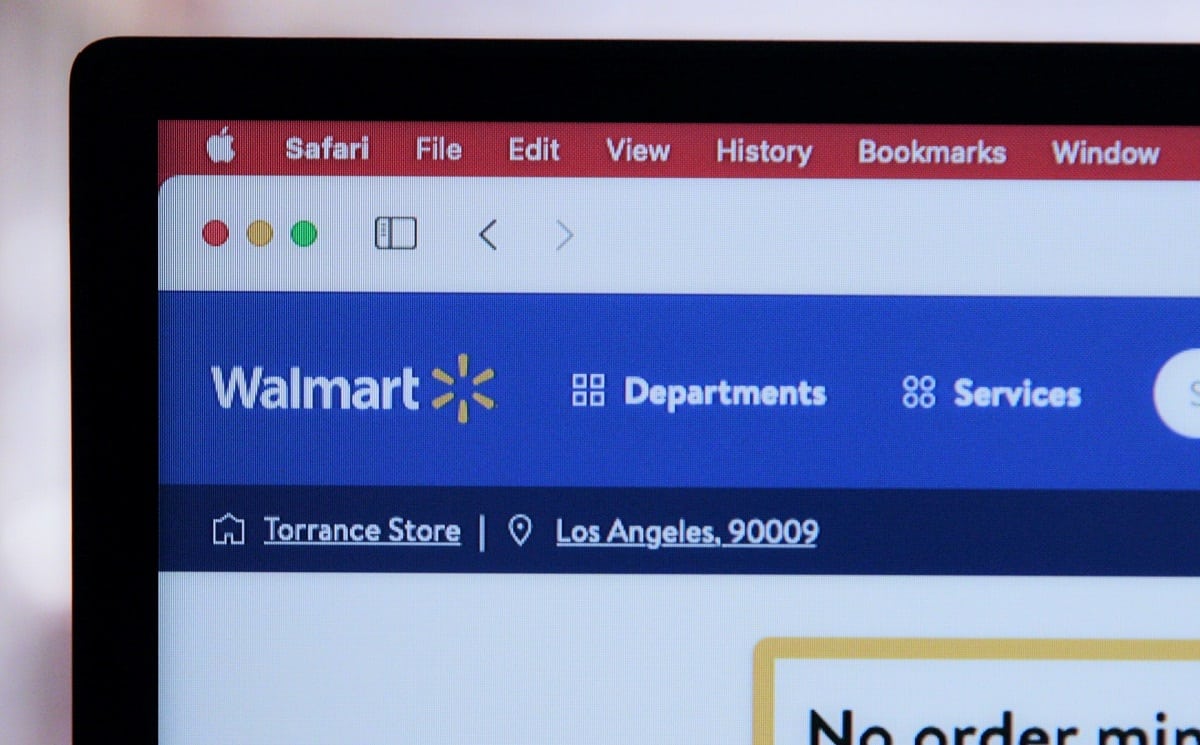HubSpot is a tech company that offers marketing and customer relationship management (CRM) software. It was founded in 2006 by Dharmesh Shah and Brian Halligan. Based in Cambridge, Massachusetts, HubSpot attracted more than 8,400 customers within a year after its founding.
It went public in 2015 and has maintained a revenue growth of between 57% and 30% ever since. Today, the platform has five hubs – marketing, sales, service, CMS (content management system), and operations.
The company introduced the CMS Hub in 2020 and the Operations Hub for smaller companies in 2021. Businesses with upto 2,000 employees can now use HubSpot to manage all their marketing, sales, and customer relationships. [1]
In 2020, HubSpot marked two crucial milestones in its 15-year history. The company surpassed 100,000 paying customers and reached $1 billion in annual recurring revenue. Its CRM platform has more than 600 integrations and delivered a 40% increase in website visits for its customers in 2020.
Thousands of companies from around 120 countries rely on HubSpot’s easy-to-use tools and integrations to innovate and adapt to the new normal. As the world’s leading CRM platform, HubSpot has to fend off its top competitors and alternatives like Salesforce and Microsoft. [2]
Here is an in-depth analysis of top HubSpot’s competitors and alternatives:
1. Salesforce
Year founded: 1999
Headquarter: San Francisco, California
Salesforce is a cloud computing services provider that offers cloud-based CRM, sales, marketing, and commerce platforms across 23 territories globally. Both HubSpot and Salesforce are renowned in the world of CRM software.
For full-year 2020, Salesforce’s revenue was $21.25 billion. Its revenue increased by 24.27% from $17.098 billion in 2019. The company has around 49,000 employees and 7.2 million users on its platform.
Salesforce offers robust features, while HubSpot users get free tools. But HubSpot cannot match its competitor on functionality. Salesforce caters to more than 150,000 organizations, including Marriott and General Electric.
However, Salesforce’s offering costs more than HubSpot. Its Sales Cloud plan starts at $150/month/user, and Pardot for marketing costs $1,250/month. HubSpot offers a free CRM and charges $50/month to $3,200/month for Sales, Marketing, Service, and CMS hubs. Salesforce is HubSpot’s top competitor and the best alternative for large companies. [3]
2. Microsoft Dynamics
Year founded: 1975
Headquarter: Redmond, Washington
Microsoft is a multinational computer technology corporation that offers end-to-end business solutions. In 2016, Microsoft replaced Dynamics CRM with Dynamics 365 designed for customer engagement. This product combines CRM and ERP, including Dynamics AX suite for ERP and financial suite built from Dynamics NAV.
Dynamics 365 offers an all-in-one solution for business management and runs on the Azure cloud-based platform, which increases its edge over HubSpot. In 2020, Microsoft had 166,475 employees and made $143.02 billion in revenue. Dynamics 365 saw a 60% surge in revenue to over $3 billion. [4]
In 2021, Microsoft implemented several strategic changes to challenge Salesforce in the cloud. These changes will also increase Dynamics’ competitive advantage over HubSpot. In Jun 2021, Microsoft became the second American publicly-traded company to reach a $2 trillion market cap. Its financial capability, comprehensive business solutions, and experience make Dynamics a formidable competitor for HubSpot. [5]
3. Zoho
Year founded: 1996
Headquarter: Chennai, Tamil Nadu, India
Zoho is an Indian software company that offers a cloud-based CRM. Its CRM platform was created in 2005 and expanded to include Zoho Office Suite, Zoho Invoice, Zoho Expense, and Zoho Social. In Jan 2020, Zoho reached 50 million users and surpassed 60 million users in 2021. Zoho’s revenue surged by around 29%, from $500 million in 2019 to $610 million in 2020. The company’s India subsidiary contributed 4.5% of its $610 million annual revenue.
Zoho also offers a CRM for SMBs known as Bigin, which added over 7,500 customers in 2020. With around 80,000 customers, Zoho is now in the same league as Salesforce and HubSpot in the CRM software market.
HubSpot has more robust features than Zoho. However, Zoho’s offering is way cheaper than HubSpot. Zoho’s Standard plan costs only $12/month, and the Professional tier goes for $20/month. Zoho is the best HubSpot alternative for small businesses. [6]
4. SAP
Year founded: 1972
Headquarter: Waldorf, Germany
SAP is a German-based enterprise software company and one of the leading providers of corporate technology. It has over 100,000 employees and operates 115 locations and R&D facilities globally. The company has been generating multibillion-dollar revenues every quarter for several years. In 2020, SAP made $32 billion in revenues, with cloud revenue up 17% to $9.5 billion. [7]
SAP Marketing Cloud runs on SAP’s S/4Hana ERP offers end-to-end business management solutions. In 2021, SAP S/4 Hana’s customer base surged 16% to 16,000 users. It introduced Rise with SAP in Jan 2021 and attracted 130 customers within three months. Currently, about 65% of SAP customer interactions rely on its partners.
In May 2021, SAP made several changes to simplify SAP-partner engagements. All these factors will increase SAP’s competitive advantage over HubSpot. SAP Marketing Cloud is the best alternative to HubSpot for large corporations. [8]
5. Marketo
Year founded: 2006
Headquarter: San Mateo, California
Marketo is an American software company that develops and sells marketing automation software. Both HubSpot and Marketo are industry leaders in cloud-based marketing automation. Vista Equity Partners bought Marketo for $1.79 billion in 2016 and transformed it for two years. In 2018, Vista EP sold Marketo to Adobe Systems Inc. for $4.75 billion. Before the acquisition, Marketo was generating around $321 million in revenues annually.
Marketo caters to enterprise and B2B clients, while HubSpot focuses on all growing companies. But Marketo offers more specialized marketing solutions, including lead management and email, consumer, and mobile marketing.
Users can purchase these modules separately or bundle for Pro, Elite, and Enterprise plans. HubSpot is the more affordable option for smaller businesses. Adobe’s existing marketing-technology capabilities give Marketo an edge over HubSpot in the marketing automation sector. [9]
6. Oracle
Year founded: 1977
Headquarter: Redwood City, California
Oracle is one of the largest tech companies globally. It provides relational databases, enterprise software, cloud computing, and computer hardware. The company has 136,000 employees and caters to almost 5,000 customers and more than 4.6 million CRM users worldwide. Over the past decade, Oracle’s revenue has grown steadily. In Jun 2021, it reported $40 billion in annual revenue for FY2021. Subscription revenue now accounts for 72% of Oracle’s total revenues. Its multi-billion cloud business shows no signs of slowing down. [10]
The main competitive advantage for Oracle over HubSpot is its cloud-based marketing platform for B2B and B2C marketers. Oracle Marketing Cloud offers six solutions, including Oracle Eloqua for marketing automation.
With Oracle Eloqua, businesses can track customers through all phases of the buying cycle. It integrates with more than 700 apps and Oracle’s solutions. Oracle Eloqua is the best HubSpot alternative for experienced marketers. [11]
7. Sage
Year founded: 1918
Headquarter: Newcastle, UK
Sage is a British multinational software company that offers enterprise-level solutions globally. It has over 6.1 million customers and 12,000 employees from 24 countries. Sage is one of the top 20 companies in the CRM software market and competes with HubSpot in this sector. In 2020, Sage’s recurring revenue increased by 8.2% to $2.32 billion.
Sage CRM offers invoicing, accounting, HR, inventory management, supply chain management, and BI. Businesses can integrate these solutions into their CRM workflow to expand their customer ecosystem. Users can host all their data on Sage 100 and access customer data via mobile app or desktop anywhere. Over 15,000 businesses globally use Sage CRM daily to fuel their growth. Sage is one of the best HubSpot alternatives for SMBs. [12]
8. MailChimp
Year founded: 2001
Headquarter: Atlanta, Georgia
Mailchimp is a marketing automation platform and email marketing service. It is owned by Rocket Science Group, an American company. This comprehensive, all-in-one platform offers efficient email correspondence strategies to help SMBs engage with their customers. Today, Mailchimp is one of the most adopted email marketing software globally. The company has around 800 employees and generates over $700 million annually.
In 2021, Mailchimp launched a new appointment booking service and online stores for small and medium businesses. These services will be part of MailChimp’s new “Websites & Commerce” plans, which have a free tier, Basic for $10/month, and Plus plan for $29/month.
It allows users to build e-commerce websites with unlimited pages, SEO tools, and integration with Google Analytics. With this offering, Mailchimp can poach small and medium online businesses from HubSpot. Mailchimp is the best HubSpot alternative for email marketing. [13]
9. Pipedrive
Year founded: 2010
Headquarter: New York, NY
Pipedrive is a deal-driven CRM solution that also offers robust tools for marketing and managing the entire sales process. Users can track and organize calls and emails and synchronize schedules across devices.
Pipedrive caters to 60,000 customers, 230,000 CRM users, and more than 90,000 companies from 170 countries. This CRM provider generates around $46.5 million in revenues annually.
Pipedrive’s easy-to-use CRM software offers efficient marketing tools to help small businesses and marketing teams sell their products and services. It is economically priced and cheaper than HubSpot. The platform’s scalability makes it one of the best HubSpot alternatives for SMBs. [14]
10. Freshworks CRM
Year founded: 2010
Headquarter: San Mateo, California
Freshworks provides a CRM platform that enables SMBs to engage and support their customers via email, phone, website, and social networks. Its CRM software strikes a balance between a lean and affordable SMB solution and a features-heavy enterprise resource.
Unlike most CRMs, Freshworks breaks down its pricing model into several tiers to meet the needs of SMBs. Users pay $12/month/user for Blossom, $25/month/user for Garden, $49/month/user for Estate, and $79/month/user for Forest.
All these plans come with marketplace apps, Freshworks integrations, bulk SMSs, API access, Freshcaller phone, and extras, such as workflow automation and advanced reports. Freshworks’ low prices, flexible pricing, and features can poach SMBs from HubSpot. [15]
References & more information
- Withers, B. (2021, Jun 23). HubSpot Is Quietly Expanding Its Addressable Market. The Motley Fool
- HubSpot, Inc. (2021, Feb 11). HubSpot Surpasses 100,000 Customers and $1 Billion in Annual Recurring Revenue. PRNewswire
- Hart, M. (2021, May 20). HubSpot vs. Salesforce CRM. US News
- Novet, J. (2020, Oct 20). Microsoft sales changes could help it challenge Salesforce in cloud software. CNBC
- Clark, M. (2021, Jun 24). Microsoft is now a $2 trillion company. The Verge
- Tyagi, G. (2021, Mar 15). Zoho’s profit grows to Rs 801 Cr in FY20; revenue from India operations jumps 59.2%. Entrackr
- McKenna, B. (2021, Jan 29). SAP full-year 2020: Revenue down 1%, cloud growth up 17%. Computer Weekly
- Whiting, R. (2021, May 28). SAP Looks to Deepen Partner-Customer Engagements with New Go-To-Market Plan. CRN News
- Peterson, A. (2021, Apr 22). HubSpot vs. Marketo: A Side-by-Side Comparison. Technology Advice
- Liu, S. (2021, Jun 23). Revenue of Oracle 2005-2021. Statista
- Pardo-Bunte, M. (2021, Apr 1). Oracle Eloqua Review. Better Buys
- The Daily Egg (2021, May). Sage CRM Review. Crazy Egg
- Lardinois, F. (2021, Apr 27). MailChimp moves into e-commerce. Tech Crunch
- Rayner, T. (2021, Feb 8). Pipedrive Review. The Motley Fool
- D. P. (2021, Feb 6). Freshworks CRM Review. The Blueprint
- Featured image Myriam Jessier












Add comment